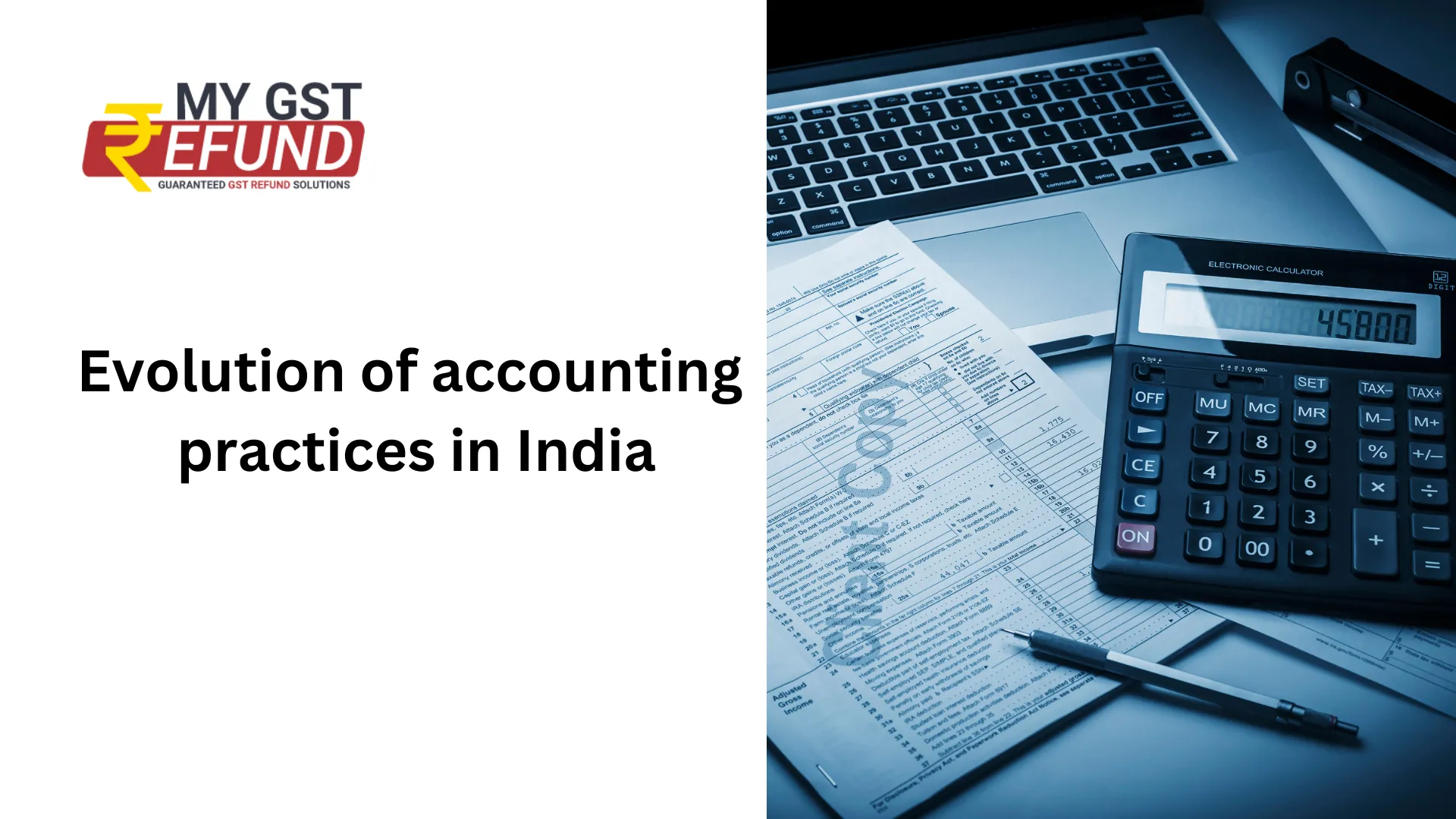Evolution of accounting practices in India
Accounting, which is the process of recording and analyzing financial information, has been important in India for thousands of years. Even though we often think of spreadsheets and calculators as modern tools for managing money, the roots of accounting go way back in Indian history. In the business world, keeping track of how much money comes in and how much goes out is crucial. This organised way of recording and understanding finances is called accounting. It's super important for making sure businesses run smoothly because it makes things clear, helps people make smart decisions, and helps the economy grow. Now, let's take a step back and look at how accounting started in India, and how it changed over time into the complex system we use today.
The Early Days [1500 BCE- 3RD Century BCE]
In ancient India, during the Vedic Age (around 1500 BCE to 500 BCE), the Indus Valley Civilization was thriving, known for its bustling trade routes. Although direct evidence of accounting practices from this time is scarce, the Rigveda, a collection of ancient hymns, provides some clues. It mentions terms like "Kraya" (sale), "Vanij" (merchant), and "Sulka" (price), suggesting a need to keep track of transactions and money. Jumping ahead to a significant milestone, we find the Arthashastra, written by Chanakya (also known as Kautilya) during the Mauryan Empire around the 3rd century BCE. This text covers various topics, including governance and economics, and surprisingly, it delves into accounting for an entire kingdom. The Arthashastra emphasizes the importance of careful record-keeping in the king's treasury. It details how to manage incoming and outgoing funds, as well as inventory. It even discusses appointing individuals to maintain these records and conduct regular checks, demonstrating the ancient concern for honesty and transparent financial management.
Although it doesn't discuss modern double-entry bookkeeping, the Arthashastra underscores the significance of organized record-keeping for managing a kingdom's finances.
Temples and the Rise of Record-Keeping (3rd Century BCE - Onwards)
In ancient India, temples weren't just for praying; they were also big business centers. They owned lots of land, got donations, and did things like farming and teaching. Keeping track of all this needed good records. The temple bosses had to know how much money came from land, donations, and other businesses. They also had to keep an eye on spending for building, upkeep, ceremonies, and paying workers. They had to make sure they knew what valuable stuff they had in stock too.
To handle all this, they probably hired people to write down everything carefully. Some experts think they used a system called "Bahi-khata," sort of like early accounting, where they had different books for different money stuff. We're not exactly sure where double-entry bookkeeping, the kind we use today, came from, but Bahi-khata shows that India was doing something similar. Even so, keeping such good records in temples was a big deal and helped shape how we do accounting today.
The Debate: The Double-Entry System
Double-entry bookkeeping is like a game of balance in accounting. Every money move gets written down twice – once as a debit and once as a credit. This makes sure everything adds up correctly, kind of like a seesaw with weights on both sides. People aren't sure where this system came from. Most say an Italian guy named Luca Pacioli wrote about it in the 15th century and made it famous. But some think a similar system called "Bahi-khata" existed in India before that. Bahi-khata had separate accounts for money coming in and going out, maybe even a bit of double entry.
They say Indian traders might've shared this method along trade routes, maybe even changing how Europeans did their accounting. Researchers are still looking into it. Even if we're not sure where it came from, Bahi-khata shows India knew its stuff about accounting long before Pacioli. Whether it was in temples or businesses, keeping careful records helped set the stage for India's accounting today.
Colonial Era and Modernization (18th Century Onwards)
When the British East India Company came to India in the 18th century, they brought their own way of doing accounting. They liked everything to be the same and followed strict rules. While some people in India still used old methods like Bahi-khata, others started using the new ways. In the 1940s, they set up something called the Institute of Chartered Accountants of India (ICAI). This made accounting more professional, with rules about who could do it and how. Indian accountants started following rules from around the world, making things clearer and helping with trade.
During this time, they started using machines like typewriters, calculators, and later on, computers, to do accounting. Schools also started teaching special courses for accounting. But not everyone liked these changes. Some people thought the British way was ignoring India's own accounting methods, like Bahi-khata. Nowadays, India is trying to mix both ways – global rules and its own unique traditions.
Present Day and Finding
Today, India has a strong system for managing money called accounting. It combines rules from around the world with its own rules to keep things clear. This helps India connect with other countries' financial systems. Accounting isn't just about writing down numbers; it helps people see how well a business is doing financially. This helps them make smart choices, attract people who want to invest money, and build trust. Having accurate and clear financial reports is really important for the country to grow because it makes people feel confident about investing and keeps businesses stable.
India has come a long way with accounting, from keeping careful records in old temples to using modern methods now. Even though they started using rules from other countries during British rule, they still kept some of their own ways. Now, technology is changing how accounting works. Things like computer programs and smart machines are making it easier. Indian accountants are learning these new ways to stay competitive and help businesses grow.
A Glimpse into the Future
India's accounting is getting better with technology. Soon, AI will do simple tasks, so accountants can focus on bigger things. Blockchain will keep records safe and stop cheating. Cloud software will let people see data all the time and work together. Data analysis will help find useful info for businesses.
With these new tools, Indian accounting will do well and help businesses around the world. In the end, India's accounting history shows how important money management is. From long ago to now, accounting helps keep money safe and clear, and helps the country grow. As India keeps growing, its old accounting ways will still be important for its success.
Conclusion
In the end, India's history with accounting teaches us how important it is to manage money well. From ancient times to now, accounting has helped keep track of money and make sure things are clear. Even as India learns new ways from other countries, it still keeps some of its own ways. Now, with technology, accounting is getting even better. Soon, machines will do simple tasks, and new tools like blockchain will keep records safe. This will help Indian accounting grow and support businesses worldwide. As India continues to grow, its old accounting ways will still be important for its success.
FAQs
Q.1 Who is the father of accounting history ?
Ans. Luca Pacioli was an Italian mathematician and friar. He's known as the "father of accounting history." He wrote a book called "Summa de Arithmetica, Geometria, Proportioni et Proportionalita" in 1494. In it, he talked a lot about double-entry accounting, which is a big idea in modern accounting.
Q.2 Who is the first accountant ?
Ans. We don't know who the first accountant was because accounting goes way back in history. In ancient times, people who kept records and managed money could be seen as the earliest accountants.
Q.3 How old is the history of accounting?
Ans. Accounting started a long time ago, thousands of years back, in places like Mesopotamia. Back then, people used basic ways to keep records and manage money. So, accounting has been around for a really long time, starting in early human societies.
Get free access to India's first-ever Automated platform for GST Refund .
Related Posts







